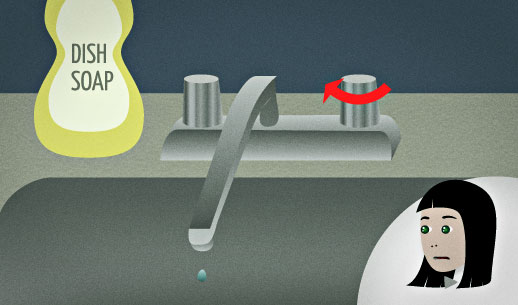“Did you turn it all the way off?”
Your son told you that the faucet is dripping. You want to know whether it's a problem with the faucet, or just that your son didn't completely turn it off. You ask this.
Did you turn it all the way off?
Want Video and Sound? Follow us on YouTube

turn (a faucet) off
To make the water stop flowing from a faucet, you "turn it off". Use "turn off" instead of other words like "shut", "stop", or "close".
You also "turn off" these things:
- the lights
- the TV
- the heat
- the oven
- your (cell) phone
- the engine (of a car)
"Turn off" is a phrasal verb. Like a lot of phrasal verbs, the object can come afterward like this:
Turn off the faucet.
And it can also come between "turn" and "off":
Turn the faucet off.
But "it", "them", and "that" have to come in the middle. They sound weird at the end:
Turn it off.
(do something) all the way (preposition)
In the example above, the speaker asks whether her son turned the faucet "all the way off". The phrase "all the way ___" is used to talk about doing something completely:
I walked all the way up the stairs, then all the way back down again.
Take it all the way off.
It's freezing in here! Let's turn the heat all the way up.
Empty the cans all the way out. Don't miss anything!
